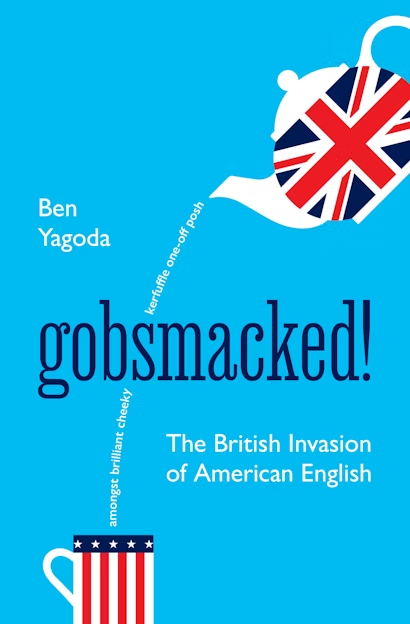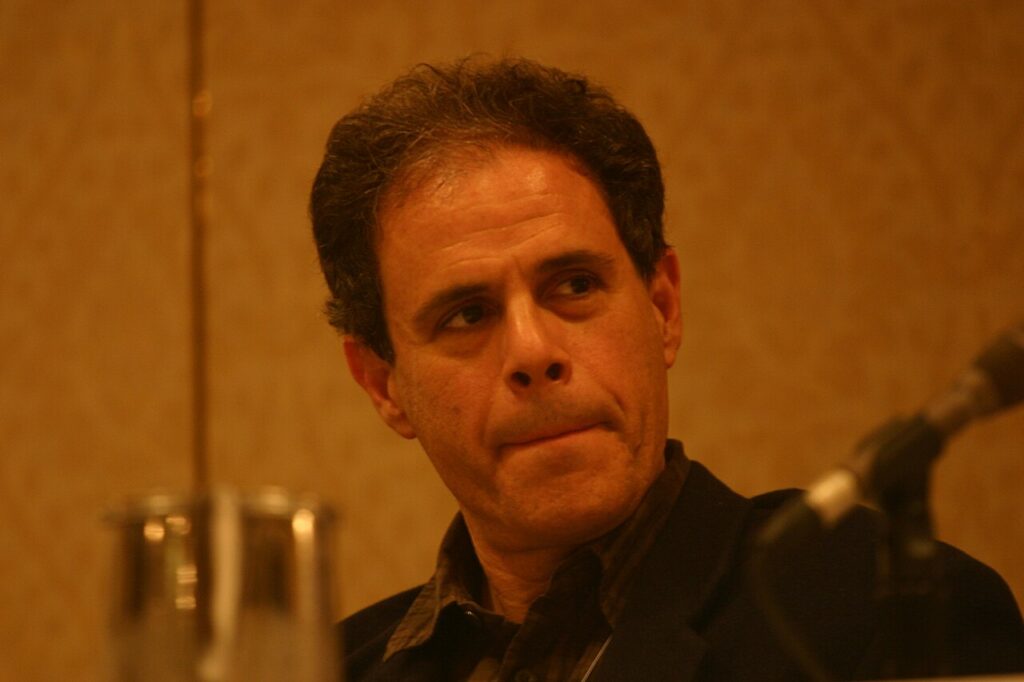‘Gobsmacked’: Keep Your Pants on Before Reading This Book
So writes our columnist of the new account of the British invasion of American English.

A new book, ‘Gobsmacked!,” by Ben Yagoda, is about the British invasion of American English, and is getting rave reviews. It proves yet again that we are, as George Bernard Shaw noted, “two countries separated by the same language.” Without even reading it, I’ve got much to say on this subject, so let’s get the immature — a.k.a. amusing — stuff out of the way first.
I’ll never forget the first time I heard an American character on TV tell another that she’d be wearing a dress, not pants, to a party; pants means knickers, not trousers, here. Decades later, I was watching an Oprah show on weight-loss, and one successful slimmer said, “You should see the size of my fanny.” That hilarity has a more gynecological meaning on our scepter’d isle.
Your fanny looks great in those pants. Can I bum a fag? Don’t put your fag butt there. Should I knock you up? You’re full of spunk. Did you haze the knobs? The politician Tony Benn telling a puzzled American audience to “keep your peckers up.” My friend loves to order “Wanker” beer in New York. “We’d call from the door into the bar, ‘Hi, do you have Wankers in here?’”
‘”Yes” they’d say. “We have Wankers on tap!”’ You see nothing funny in Randy as a first name or Bender as a surname; one of your big Tech companies had a Randy Bender in a senior position, which in Britain would ensure that none of his staff ever did a decent day’s work in their lives, due to repeated outbreaks of juvenile hilarity.

Another English friend made the mistake of asking a young lady in an American office for a rubber; she looked at him strangely, only to discover that he meant an eraser. Yet another was shocked by so many salons offering discounted “shags” between certain hours before realizing it was a hairstyle; another couldn’t believe we have a chainstore called “Poundland.”
Was it Joan Rivers who said that in the United States suspenders keep a man’s trousers up but in the UK they make his trousers drop? Why on earth would any decent American want to lay a table? It’s not just that we say tomato and you say toma-a-a-to. The standard English remark “I’m eating my tea” would perplex an American; “I’m eating faggots for my tea” even more so.
It turns out that “Mr. Brain’s Faggots” are the most popular brand here. Cilantro, eggplant, biscuits in gravy for breakfast? And of course — (h)erbs, which leads us to the most fascinating and counter-intuitive chapter of our shared language story: Our accent used to be an American accent, even saying “herb” in the same crazy way.
It’s ironic that although America’s culture is commonly perceived as more dynamic, forward-looking, and fast-moving than ours, the Yanks have clung to the original spellings and pronunciation while we, the supposedly stuffy ones, kept changing. American English, far from being new-fangled, is often fossilized English.

“Y’all” is actually said to come from Cavalier times. While the word “gotten” — at which I myself have rolled my eyes at — was used by Shakespeare, amongst others, saying in Richard III “With much ado at length have gotten leave, to look upon my sometimes royal master’s face.” I thought that Americans said “tidbits” rather than our “titbits” out of prudishness.
Yet it’s one of those words which changed after the dialects diverged, “tidbit” (or even “tydbit”) being the original pre-American word that the colonists took with them while the Brits changed it to “titbit” later. “He axed me” has always conjured up visions of Jack Nicholson smashing through a door screaming “Here’s Johnny!” but apparently it goes all the way back to Anglo-Saxon “acsian,” which is even in the first English translation of the Bible.
There are a few linguistic tussles on which I’ll stand my national ground. When “awesome” is routinely applied to lip gloss, what do we call the Grand Canyon? In any event, many assumptions about our superiority vis-a-vis our shared language make Brits look foolish. For years I was one of those fools who parroted the cliche that “Americans don’t get irony.” One word — Frasier.
On both sides of the Atlantic, we are now weirdly in sync, as the toxic tongue of the Wokesters completes its capture creep of our institutions: “Diversity and inclusivity” (once meant variety and tolerance, now means excluding anyone who thinks differently), “community” (once street parties and singing, now peevish special-pleaders), “activism” (once getting out and organizing people, now sitting at home swearing at people on the internet). It’s not always a good thing to speak the same language.

